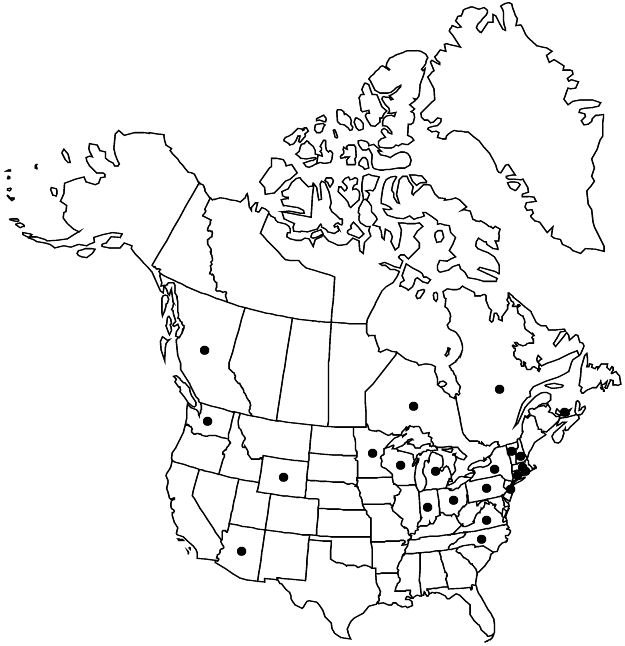Difference between revisions of "Potentilla inclinata"
Hist. Pl. Dauphiné 3: 567, plate 45 [bottom left]. 1788.
FNA>Volume Importer |
FNA>Volume Importer |
(No difference)
| |
Revision as of 20:35, 24 September 2019
Stems ascending to erect, (1–)1.5–5 dm. Basal leaves palmate. Cauline leaves 3–9, proximal ones 5–10(–14) cm; proximal petioles 2–6(–8) cm, long hairs sparse to common, spreading to loosely appressed, 1.5–3 mm, soft to weak, short or crisped hairs abundant, cottony hairs mostly absent, glands sparse to common, usually obscured; leaflets 5–7, central one usually ± oblanceolate, (1.5–)2–5 × 0.5–1.5 cm, margins flat or ± revolute, distal (1/2–)3/4+ usually evenly incised 1/2 to midvein, teeth 4–6(–10) per side, surfaces ± dissimilar, abaxial grayish to gray-green, long hairs sparse to common (especially on veins), 1–2.5 mm, soft to weak, short or crisped hairs ± abundant, sometimes sparse, cottony hairs absent, glands ± sparse (usually obscured), adaxial long hairs usually sparse, sometimes absent, 1–2 mm, short hairs absent or sparse, crisped and cottony hairs absent, glands absent or sparse. Inflorescences 10–50+-flowered. Pedicels 0.3–1.5(–3) cm. Flowers: epicalyx bractlets lanceolate or elliptic to oblong, 3–6 × 1–1.5 mm, length ± 1 times sepals; sepals 3.5–6.5 mm, apex acute to acuminate; petals 4–7(–8) × 4–5(–6) mm; filaments 0.8–2.5 mm, anthers (0.5–)0.8–1.2 mm; carpels 80–100+, styles 0.8–1.1 mm, scarcely papillate-swollen proximally. Achenes 1 mm, lightly rugose. 2n = 14, 28, 35, 42, 84 (Eurasia).
Phenology: Flowering summer.
Habitat: Dry waste places, along roadsides, ditches, other open sites, in grasslands, oak and conifer woodlands
Elevation: 0–2200 m
Distribution

B.C., Ont., P.E.I., Que., Ariz., Conn., Ind., Mass., Mich., Minn., N.H., N.J., N.Y., N.C., Ohio, Pa., R.I., Vt., Va., Wash., Wis., Wyo., Eurasia.
Discussion
In addition to the characters given in the key, Potentilla inclinata in the flora area tends to have narrower leaflets, more compact inflorescences with fewer flowers, and more coarsely hairy epicalyx bractlets and sepals than P. intermedia. The species is currently becoming more common in western North America.
The name Potentilla inclinata has been conserved over P. assurgens Villars (T. Gregor et al. 2009).
Selected References
None.